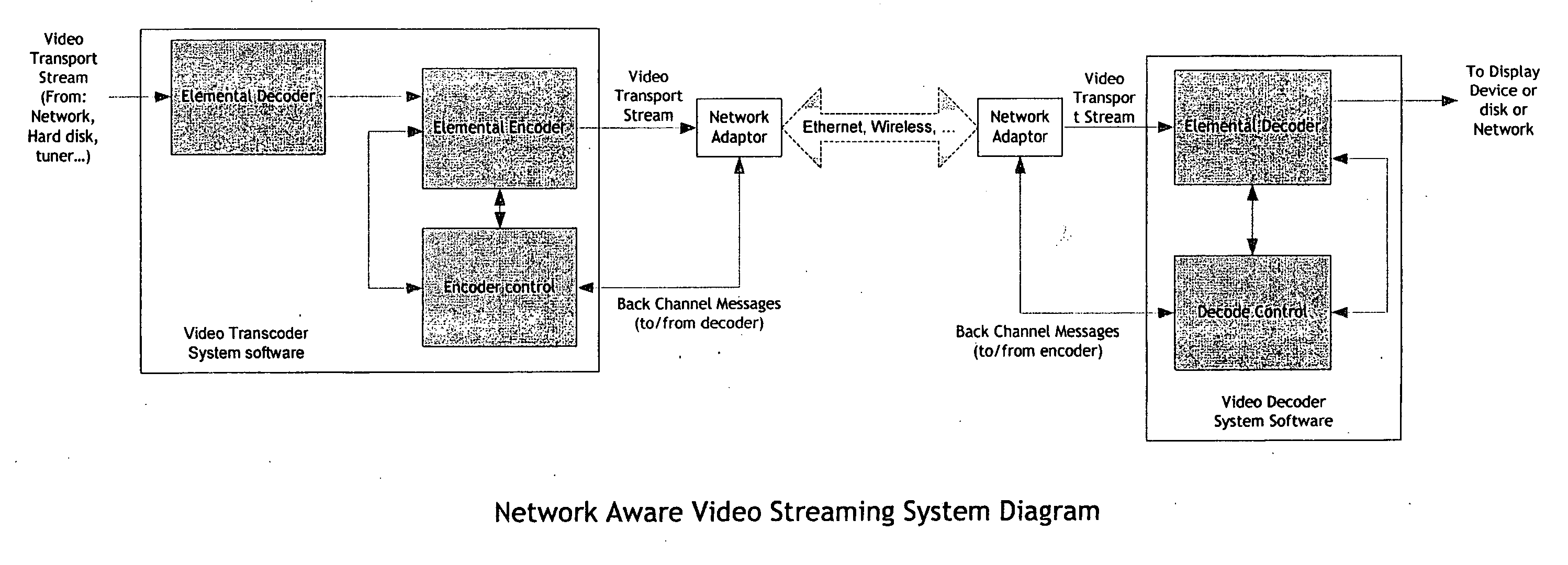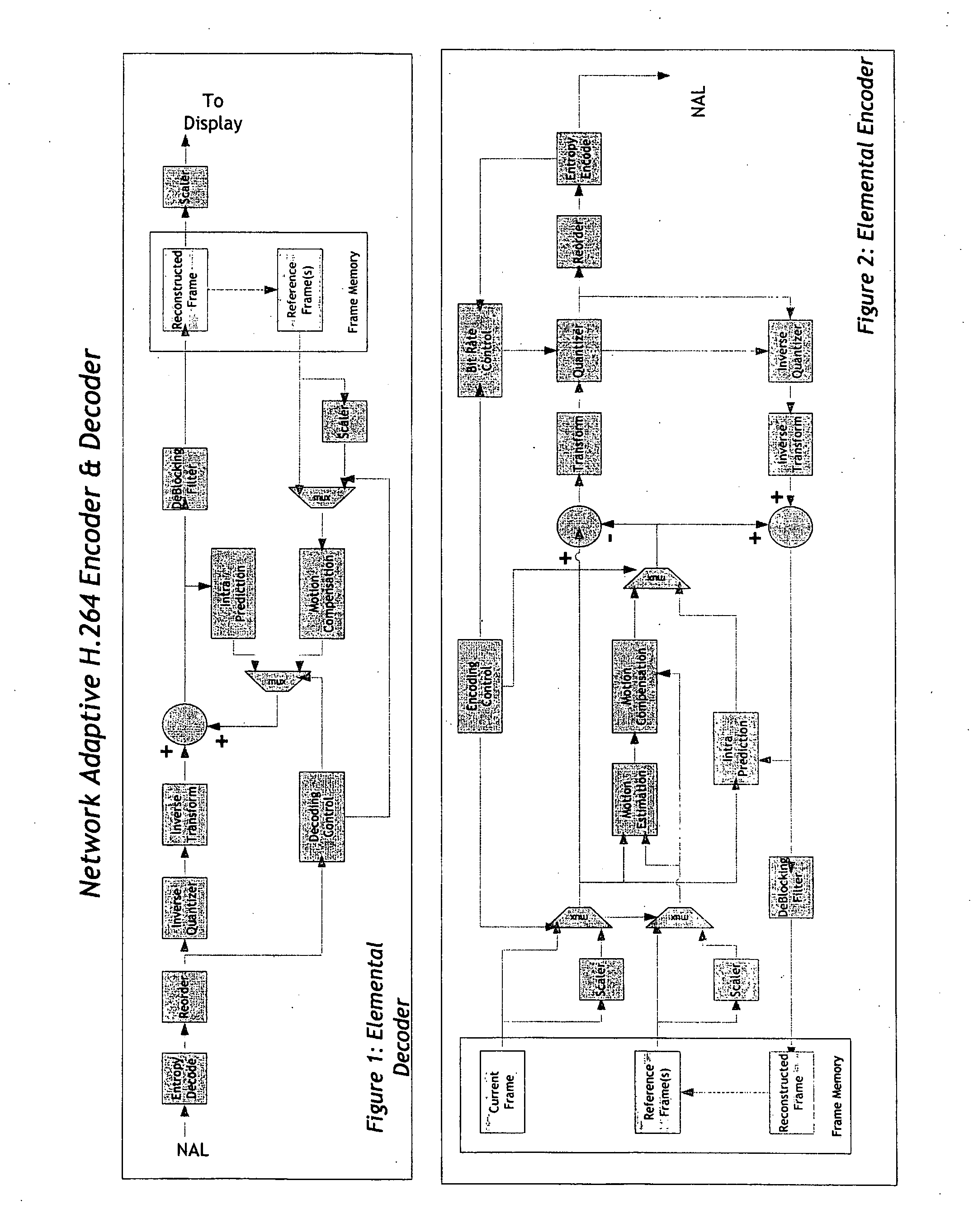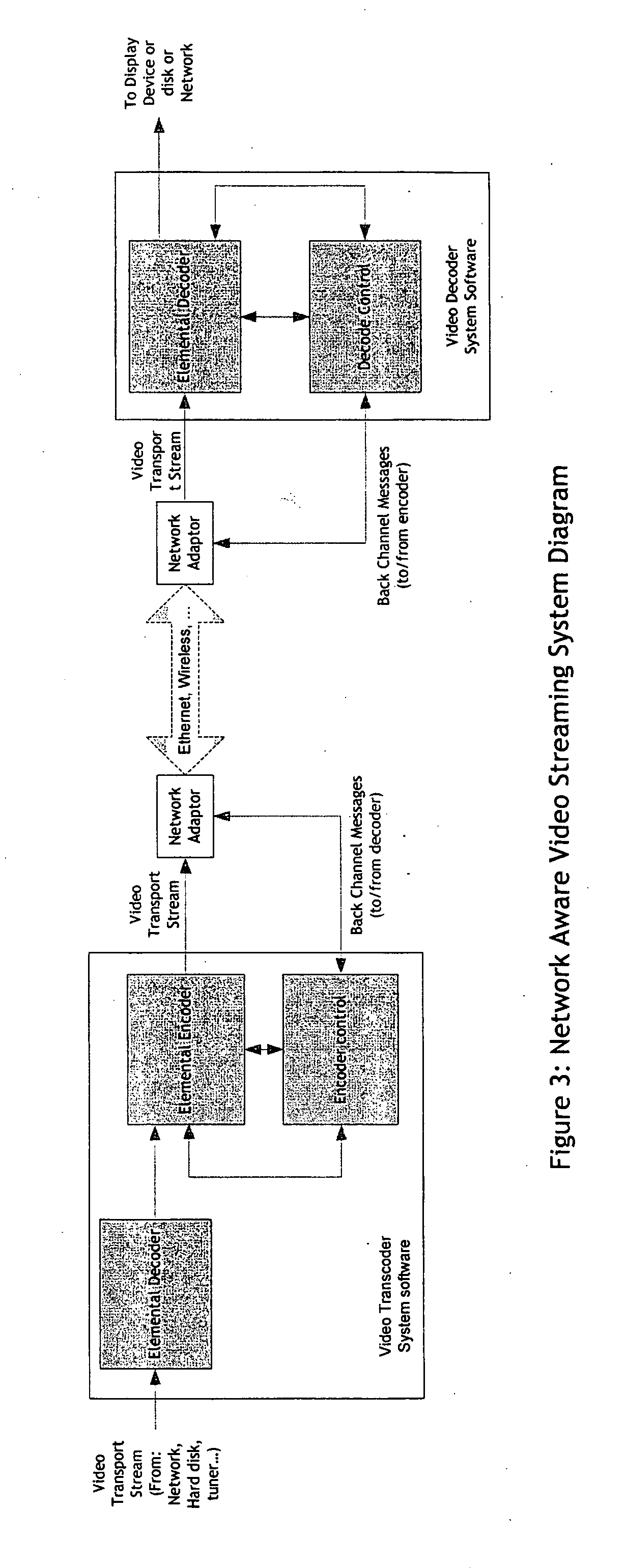Real-time network adaptive digital video encoding/decoding
a digital video and network technology, applied in the field of real-time network adaptive digital video encoding/decoding, can solve the problems of network bottleneck, unstable/unpredictability of available bandwidth in these networks, image breakup, etc., and achieve the effect of reducing the scaling factor and reducing the overall data rate per fram
- Summary
- Abstract
- Description
- Claims
- Application Information
AI Technical Summary
Benefits of technology
Problems solved by technology
Method used
Image
Examples
Embodiment Construction
[0015]FIGS. 1 and 2 shows a block diagram of the elemental encoder and decoder. Scalers are introduced into a standard H.264 encoder and decoder at the output of the reference frames and current frame to be encoded to allow for dynamic scaling at any time during the streaming process.
[0016]FIG. 3 shows a system block diagram of the network adaptive encoder / decoder streaming pair. The encoding gets its video stream from a hard disk, tv tuner, or the internet and begins encoding it for the client decoder, at the same time, the encoder is monitoring the backchannel from the client (s). As network conditions change, messages are sent back from the client about quality of the network and the encoder then adapts the video as necessary.
[0017]FIG. 3 thus illustrates the communication backchannel from the Decoder to the Encoder. When the decoder detects that its buffers are running low (programmable threshold) it sends a message over the network (for example an IP packet) which signals the...
PUM
 Login to View More
Login to View More Abstract
Description
Claims
Application Information
 Login to View More
Login to View More - R&D
- Intellectual Property
- Life Sciences
- Materials
- Tech Scout
- Unparalleled Data Quality
- Higher Quality Content
- 60% Fewer Hallucinations
Browse by: Latest US Patents, China's latest patents, Technical Efficacy Thesaurus, Application Domain, Technology Topic, Popular Technical Reports.
© 2025 PatSnap. All rights reserved.Legal|Privacy policy|Modern Slavery Act Transparency Statement|Sitemap|About US| Contact US: help@patsnap.com



